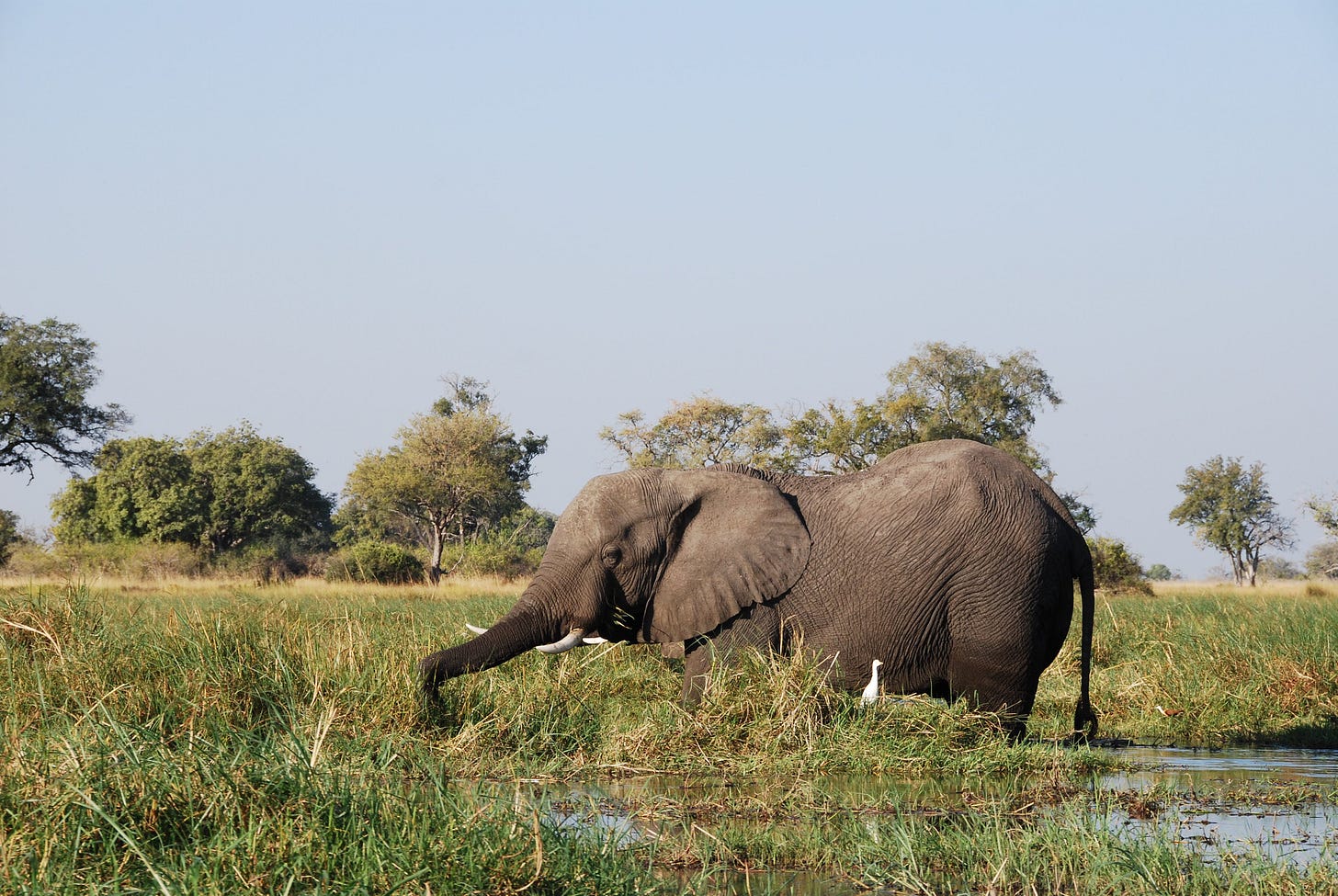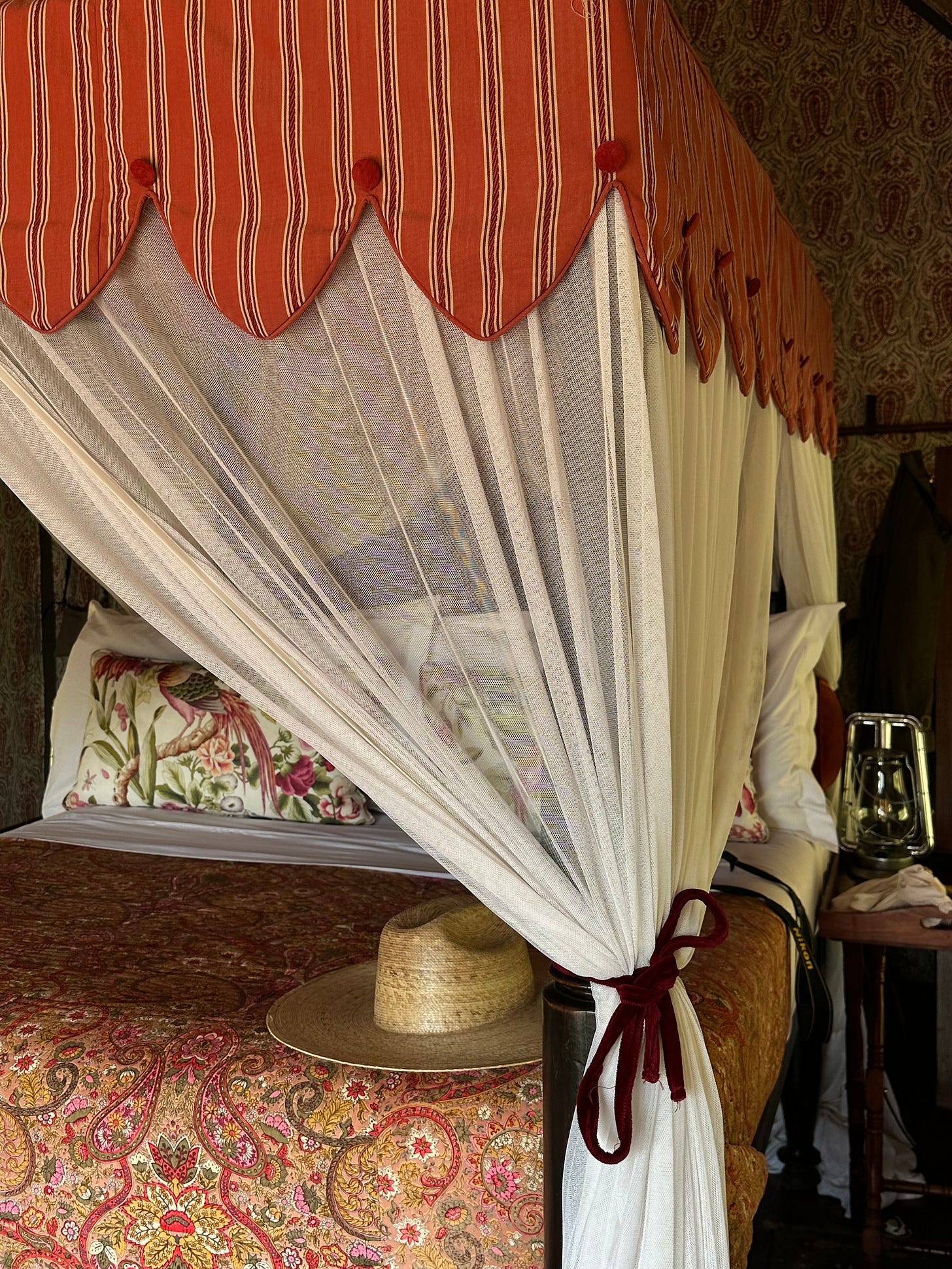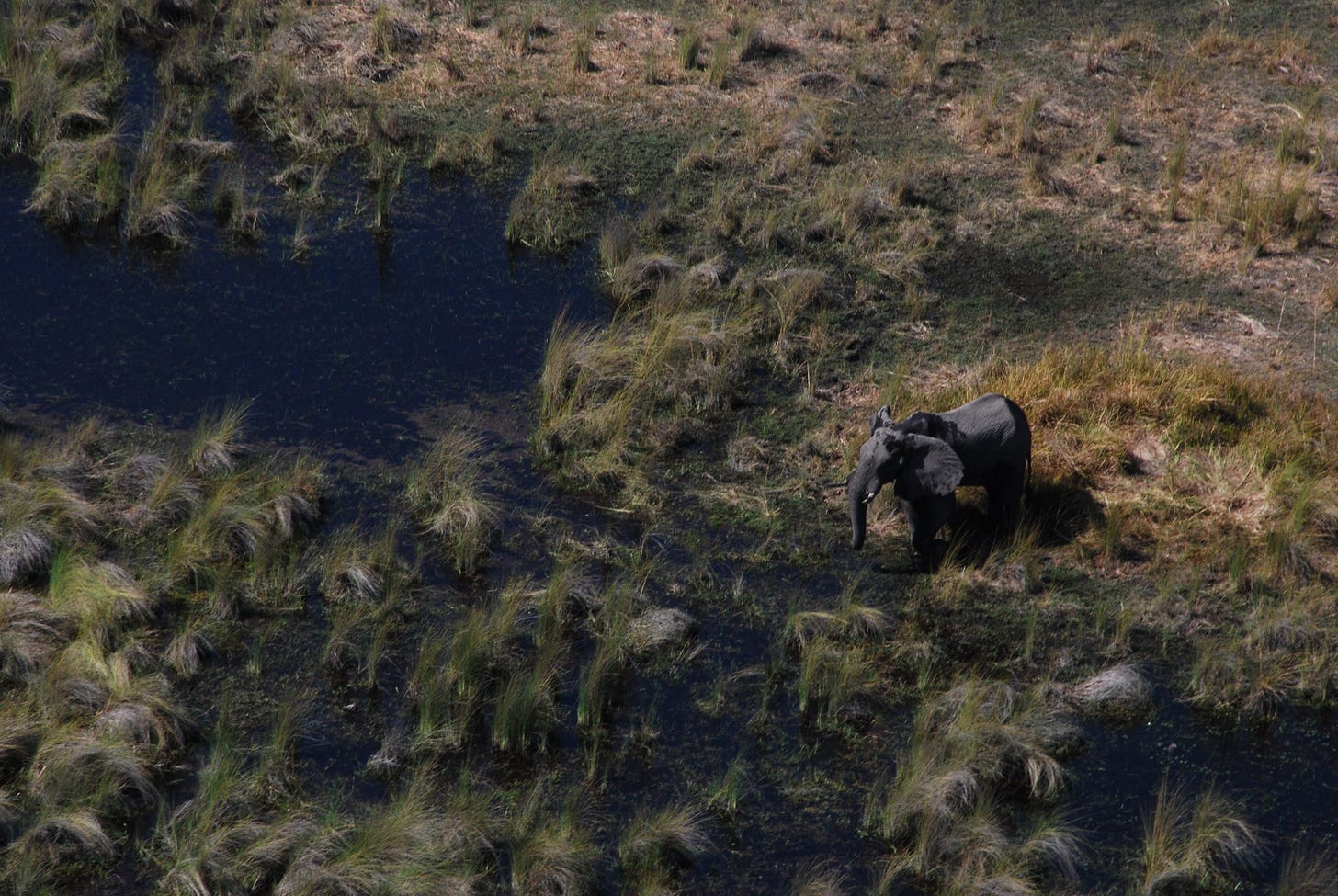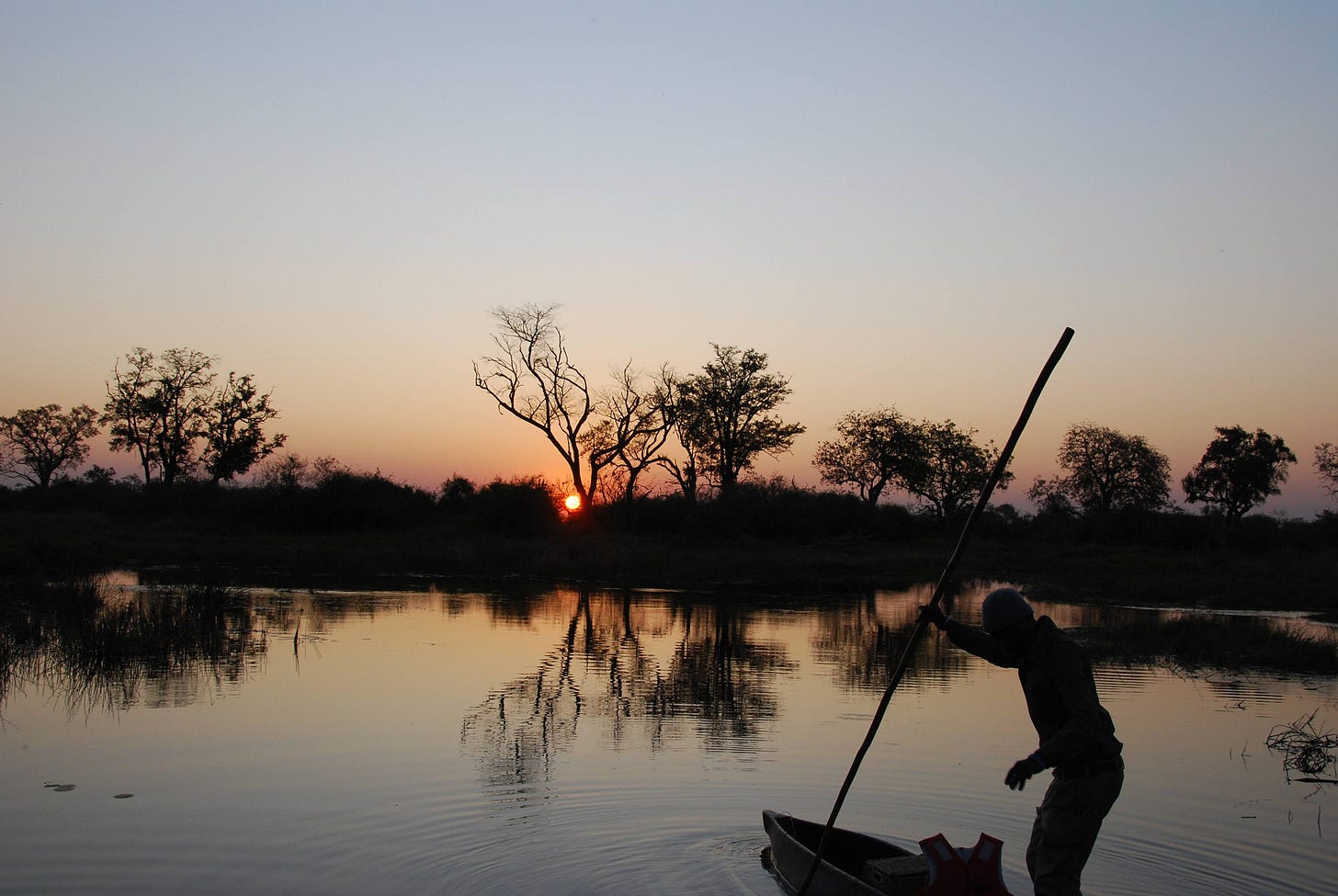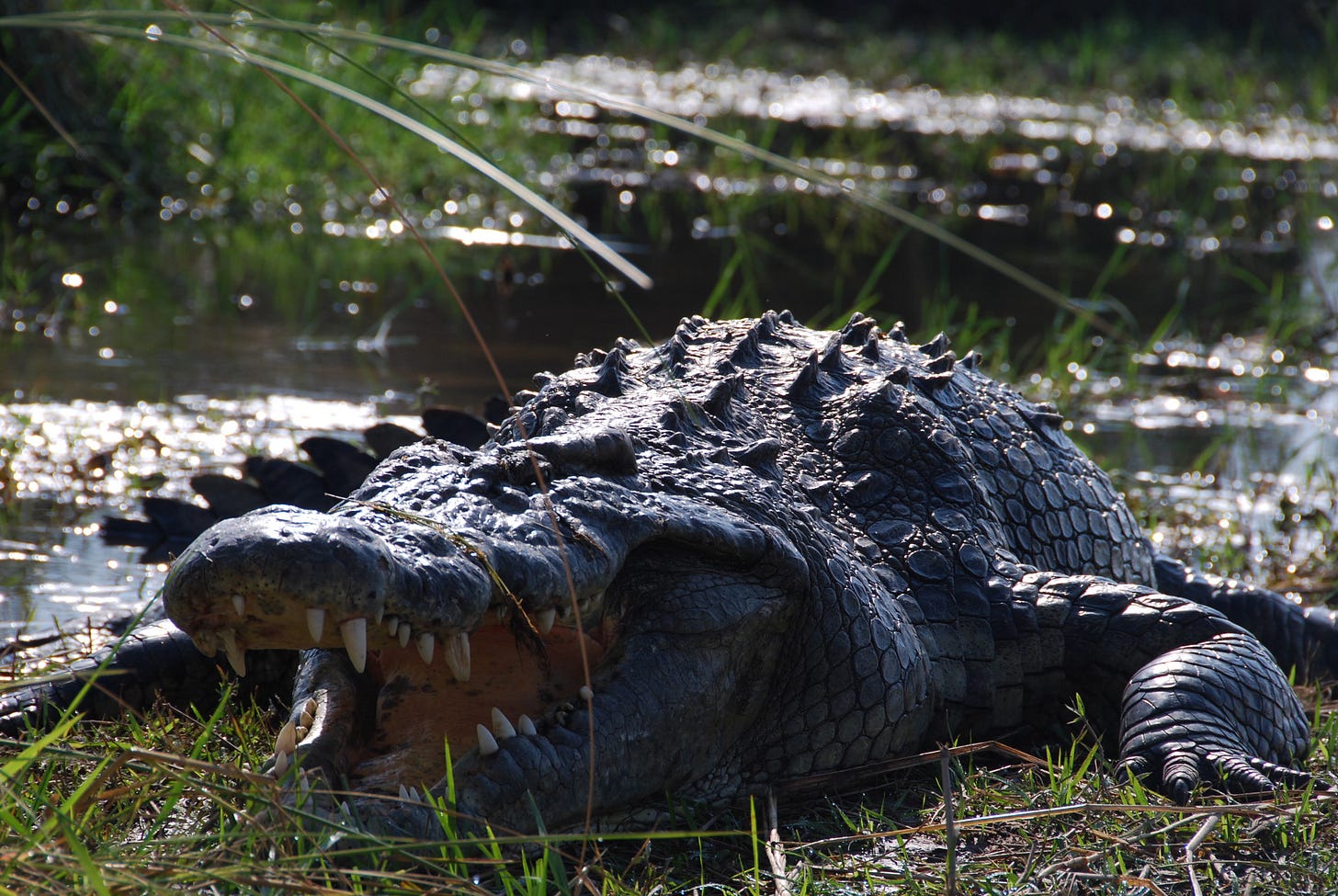The first time I remember truly considering Botswana, I envisioned a thriving wetland filled with reeds two men high. I envisioned prides of lion and camps on the bank of the river, filled with Persian rugs and campaign style furniture. So it’s no surprise that when planning for a trip to the famed Okavango Delta in Botswana, I immediately fell in love with Duke’s Camp.
Duke’s Camp wows even before arrival. Within the 30 minute drive from the airstrip to the camp, which functioned effectively as our first mini safari, we had seen hippo, warthog, giraffe, baboons, water buck, zebra ostrich, elephants, lion, and at least 20 species of bird. We were charged by a herd of elephants, warned not to steal a baboon’s sausage (a fruit from the sausage tree), and observers of a very sleepy lion stretch.
At risk of giving too much away, Duke’s Camp is an “if you know, you know” place. Not much information exists online, and even Travel and Leisure articles spend a paltry few sentences in summary - though it’s consistently ranked as a top destination in Botswana and the world at large. I discussed this matter with the staff who confirmed - Duke’s Camp, like many of the best places, is primarily community and word-of-mouth driven. I have a penchant for these types of places - the more private the better, the less anyone in my well-traveled community knows about it the better. But there’s no use being a contrarian without a cause - Duke’s Camp is dangerously good, and deserves a place at the top of your list.
Duke’s Camp is the second location of the wildly popular Jack’s Camp, sitting on the other side of the country on the salt flats where the meerkats are abundant. Jack’s Camp is registered as a museum due to all of the artifacts the owners collected throughout the generations, and Duke’s follows suit with tents overflowing with curiosities, maps, art, objets d’art, and animal skulls. The camp is set up just next to a river teeming with life, only a nearly invisible electric wire separating guests from the wildlife. There are just a handful of tents, which serve as accommodations for the stay. These aren’t your average tents, of course, but a step back in time to the challenging colonial past. Deep wooden furniture, a cloud-soft canopy bed, and a full bathroom with a shower wait inside. Private decks to the front allow for lazy viewing of the elephants drinking and bathing in the river. The linens are luxe and the fabrics beautiful.
But make no mistake - this is camping. Arriving at night hot water bottles wait in bed for you, and for 5AM wakeup it’s my recommendation to leave socks and a sweater at arms length from the bed. This, of course, is all by design. Duke’s Camp is environment-forward, with an express goal to set up these temporary, yet luxurious camps, for a decade or so (or until the environment feels a sizable impact), and then move on. Which, yes, means the clock is ticking: you only have a limited time to visit Duke’s Camp before they close up shop and re-open somewhere else.
Safari at Duke’s Camp proves to be an embarrassment of riches. A prolonged game of I spy that gets easier with every moment passing, we added kudu, the critically endangered African wild dog, hyena, sable, antelope, egret, herons, and wildebeest just the next morning. You learn to tell ALTs (animal looking thing, which, despite it’s colloquial humor, is a well-known phrase across every southern African country we visited) from animals more quickly with each passing day.
The experience is a mix of classic game drives and a variety of water based activities. Prince, our guide, was intimately familiar with all of the wildlife we saw, and brought us seamlessly from one excursion to another. We were treated to a number of boat rides during our stay - first, a mokoro, or classic canoe-like boat carved from a tree and useful for generations among locals. Tu, our boat guide, expertly weaved us through the reeds, pointing out the smaller animals that live among them. Second - a speed boat that allowed us close-ups with hippo, elephants, egrets, and, of course, the mighty crocodile. The gift of being just a foot or two away from a 90-year-old crocodile is only rivaled by watching the sherbet sunset from atop the speed boat as the air cools and the elephants feed.
Upon arriving home post-game drive and sundowner, your evening is spent around the campfire with other guests and guides, and by the pool for a delicious and nourishing meal. Amidst the silver vases shimmering in candlelight it may almost be easy to forget you’re in the wild, until you hear a hippo howl only 20 meters in the distance.
There’s a deep feeling at Duke’s of being privy to a world that nobody has ever seen, and entirely possible that you are the first car to drive by a certain tree or witness this specific crocodile feed. The staff is knowledgable, relaxed, and kind - always around to chat about the unique Botswanan culture or how the passage of time has impacted the delta. An air of romance, comfort, and adventure mark a trip to Duke’s Camp in the Okavango Delta of Botswana a memory to savor for a lifetime.
Interested in booking a trip to Africa? Email Bianca Johnstone at bianca@iconexpeditions.com and feel free to mention that Ellie Harding sent you.




